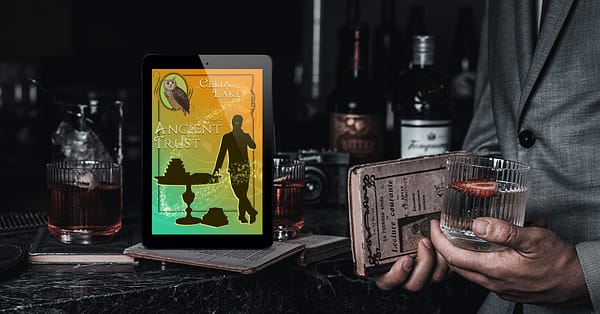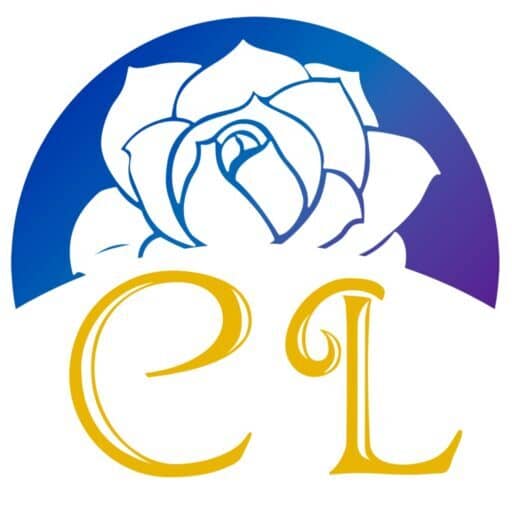Are you curious about the land magic? Carillon’s background? What it means to be a Lord in Albion?
Did you know there’s a new novella out? It’s my treat if you sign up for my newsletter. (Feel free to unsubscribe when you need to, of course. But I hope you’ll stick around, at least for an email or two that will let you get all the other treats I share with my newsletter subscribers.)

Ancient Trust is all about what happens when Geoffrey Carillon inherits the title on his brother’s death. It has quite a lot about the land magic customs at Ytene. It also led to some interesting questions from a reader.
(I love reader questions. Sometimes I haven’t settled on my final answer about something. But I’ll let you know if you ask something I can’t answer yet. Or if you ask something that’s too much of a spoiler for something that’s coming out in the future.)
The questions:
It got me thinking, how do the Lords of Albion engage with the House of Lords? Is attending Westminster an additional responsibility for Carillion? Do Albion peerages result in having the right to sit in the House? And what about the women? How does the Land Magic recognise women?
These are great questions – and also some that I haven’t quite found the right place to get into text. Let’s take this one by one in an order that should help.
Lords (and Ladies) in Albion
It’s a very practical title. When Richard III made the Pact in 1484, the responsibility for the national land magic passed to the Council. The Lords and Ladies of the land picked up specific responsibilities for the local land magic of their particular area or the demesne lands.
The precise divisions vary a little, but roughly speaking, most of the historical counties in England have two Lords (or Ladies) responsible. The Carillons hold Ytene, and are responsible for the northern half of the New Forest. The Edgartons hold Veritas, and are responsible for roughly the western half of Kent.
(I’ve mapped some of this out. But mostly I map things like this out when I actually get around to talking about specific people so I haven’t done all of Albion yet.)
Wales and Scotland get a little more complicated in terms of numbers and divisions, but work on the same basic principle. Ireland is not part of Albion at all, though the magical communities are on reasonably civil terms in the 1920s.
Lords and Ladies may have land holdings in other areas of the country. (For example, Carillon has Hawk’s Breath, in Cumbria, which is a family estate, but not his demesne land.)
Who can inherit the land magic?
Ideally, the current Lord (or Lady) declares and ritually names a Heir well before their death. In the best of all possible worlds, the Heir has plenty of time to live on the demesne estate associated with the title (where the magical title is anchored). They also have time to learn the particular traditions and are tied into the previous holder via some kind of direct connection. Most commonly that’s bloodline (parent to child, siblings, cousins), because that helps with attunement with the land magic. It is possible to adopt someone in, though, even as an adult.
There’s also a provision for regency, if the holder of the land magic dies without a heir of suitable age. (This comes up in the forthcoming Nocturnal Quarry.)
Once someone inherits the land magic, they can choose to pass it on to someone else. However, removing it from them without their consent is extremely complicated. Intervention by the Council happens only very rarely (less than once a century), because it has a lot of risks. Mostly, the assumption is that the land can coast for a generation, especially if the surrounding estates are well managed.
Women inheriting a title
Women can inherit and hold the land magic in their own right.
The Hare and the Oak involves a lost heir, who’s a woman, as a secondary character. (Not saying more here, because that’s a spoiler! It does also get into what happens if the current holder of the title isn’t able to sustain the land magic.)
Lady Jenifry Alton (who appears as a minor character in Sailor’s Jewel and The Hare and the Oak) holds the title in her own right. I’m also pretty sure at this point that the Arundel title will pass from Garin Fortier to his brother Isembard. Eventually it will go to Isembard and Thesan’s daughter (rather than their son).
For a woman to stay with the land magic, she needs to find someone willing to marry into her family. In terms of marriage negotiations, that would mean her family magic traditions would predominate, as well as other financial and precedence considerations. That’s historically been a harder sell to potential male partners. (Attractive to people wanting to marry up socially, or where particular marriage alliances are compelling for personal or political reasons, but still tricky.)
Primogeniture
Customarily, the eldest son of the current Lord and Lady is named as Heir when they reach an appropriate age. Since the Pact, this is usually shortly after they make their oath to the Silence at twelve. But some families delay naming a Heir until they’ve finished their education or some other age.
It’s customary to wait that long to make sure the Heir does in fact have enough magic to make the Pact. Holding the land magic doesn’t actually require a lot of magical power or even training. But those things definitely help in maintaining the estate, fixing problems as they come up, and dealing with unusual events.
If one child is obviously more suited for the land magic than another, the family may also decide to name their Heir differently. (Isembard and Thesan’s daughter is the older of their two children, but she is also much more inclined to Arundel than her younger brother is.)
If the Lord/Lady doesn’t have a child, they can name their Heir at any appropriate time. Geoffrey Carillon is in the middle of the Great War when his parents die and his brother Temple becomes Lord. He can’t get back for the funeral, but does get a long enough leave a month or two later to come back and do that ritual with his brother. (Both parties do need to be present, on the estate that holds the land magic for this ritual. Doing it in absentia is a lot more complex magically and generally not trusted.)
Becoming Heir is magical preparation, rather than being magically binding, so it’s quite common for someone to inherit the land magic in their 20s (before they have children, or have children of appropriate age) and name a sibling or cousin as Heir. At an appropriate point (even a decade or more later) they can name a different Heir when that makes sense. The same obviously applies if something happens to the Heir.
Gabe Edgarton was named Heir when he was 12. Isembard Fortier became his brother’s Heir not long after Garin inherited.
Titles in Albion
The title of Lord or Lady is a signifier of profession, for lack of a better word, like Guard or Captain or Healer are. That means that it gets applied to the last name. (In some cases, people may adapt their last name when they inherit, by hyphenating names or changing their last name to the name associated with the title if they were adopted in or a cousin.)
Hence, Geoffrey Carillon as Heir to his brother becomes Lord Geoffrey Carillon or Lord Carillon. Social intimates may drop the title in appropriate settings. (Carillon eventually moves to calling Richard and Alysoun that, rather than Lord Richard and Lady Alysoun. He remains difficult and unconventional in getting called by his surname until the events of Best Foot Forward.)
This is not how titles work in Britain in general! Usually the title and the surname are different in that case. (KJ Charles has a fantastic guide to how it works in historical Britain.)
As she says:
“(Or you can ignore all this, make up an alternate universe, and set your own rules. Go for it. But any form of titling serves two purposes: to indicate status, and to mark in-group and out-group via knowledge of pointless rules. So an aristocracy where specific titles don’t matter and have no rules is an aristocracy that, basically, wouldn’t exist in human society. That’s the nature of the beast.)”
KJ. Charles
In Albion, titles indicate status, and the in-group and out-group knowledge of pointless rules has to do with how people handle the show of their responsibilities and a lot of complicated social posturing around the magical skills and education of the people with the titles. Different status set! Some of the Land Mysteries books will get into this in more depth, because what it means to tend the land magic well is different than having visible status as a Lord or Lady.
Interaction with British aristocracy
This is where it gets tricky. It is possible for someone who holds the land magic in Albion to also hold inherited (or granted) titles of nobility in non-magical Britain. It depends!
Some people make an oath to the Pact (and may also be educated at one of the Five Schools or do a magical apprenticeship) but spend most of their lives living in non-magical circles. That may well include being active in the House of Lords, aristocratic non-magical society, and so on. (Fortunately, a certain tolerance for eccentricity explains why they may not be available at some times, when they’re required to be involved in the land rites.)
Other people hold a non-magical title, but are (from the non-magical side) considered recluses, or always on their country estate. Again, there’s rather a lot of historical precedent for this being a thing some people do.
And of course, some people hold the land magic in Albion without holding a non-magical title. In this case, they’re often referred to as Lord Whatever, and everyone non-magical is slightly baffled about where the title connects, but there’s usually some obscure connection that shows up in Debrett’s and other non-magical catalogues of nobility.
I haven’t put this formally in fiction text yet (my definition for what’s canonical for Albion). My inclination is that there used to be a non-magical title in the Carillon family, but it passed out of the direct magical line of the family some generations ago. Same thing with the Edgartons.
All clear as mud? Good! Let me know if you have more questions.
